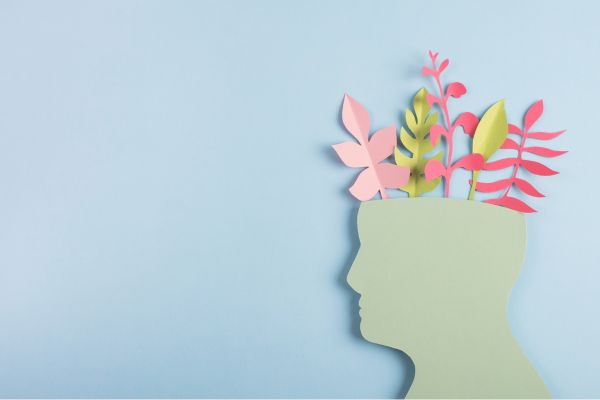Recovery from addiction is a deeply personal, holistic journey that touches every aspect of an individual’s life, including mental health. Mental health plays a pivotal role in sustaining long-term recovery, providing the emotional resilience and clarity needed to navigate challenges and embrace a fulfilling life free from substance use.
The Link Between Mental Health and Addiction Recovery
The relationship between mental health and addiction is profound and often intertwined. Many individuals in recovery face co-occurring disorders where addiction and mental health challenges coexist. Depression, anxiety, PTSD and other mental health conditions frequently accompany substance use, creating a cycle where each condition fuels the other.
Untreated mental health issues can act as a significant barrier to recovery. Emotional pain, unresolved trauma or unmanaged stress can lead to a relapse if not addressed. Prioritizing mental health ensures individuals have the tools and support they need to break free from this cycle, setting the stage for a sustainable, substance-free life.
How Mental Health Impacts the Recovery Process
Mental health profoundly influences each stage of recovery, shaping how individuals cope with challenges, build relationships and sustain sobriety. A strong foundation in mental health provides the tools needed to navigate emotional triggers, foster personal growth and create lasting change.
Emotional Resilience in Early Recovery
The early stages of recovery are often the most vulnerable. Emotional resilience, the ability to cope with stress and setbacks, plays a critical role in managing triggers and avoiding relapse. For many, substances served as a coping mechanism for emotional pain.
Recovery requires recognizing these underlying feelings and finding healthier ways to process them. Therapeutic interventions and mindfulness practices can help individuals build emotional stability, fostering a sense of control and self-awareness vital in early recovery.
Building Healthy Relationships
Mental health is also essential for nurturing healthy, supportive relationships. Addiction often strains or damages personal connections, leading to mistrust and isolation. Addressing mental health challenges can improve communication skills, rebuild trust and help individuals develop the emotional tools to repair relationships. Therapy provides a safe space to explore past traumas, understand behavioral patterns, and foster deeper connections with loved ones.
Sustaining Long-Term Sobriety
Recovery isn’t just about avoiding substances; it’s about creating a fulfilling, purposeful life. Mental health forms the foundation for personal growth, enabling individuals to reflect on their experiences, set meaningful goals and develop healthy coping strategies. Practices like mindfulness, journaling and self-reflection encourage a deeper connection to oneself, which is crucial for sustaining sobriety.
Benefits of Prioritizing Mental Health in Recovery
Prioritizing mental health offers numerous benefits that extend beyond sobriety, improving overall quality of life. Here are just a few of the transformative impacts:
- Improved Decision-Making: Mental clarity supports better choices, helping individuals navigate challenges without resorting to old habits.
- Enhanced Problem-Solving Skills: Emotional regulation enables thoughtful responses to stress instead of reactive behaviors.
- Greater Sense of Purpose: Strengthened mental health fosters self-worth and a clearer vision of personal goals.
- Reduced Risk of Relapse: Managing mental health minimizes emotional triggers that can lead to substance use.
- Overall Well-Being: Balanced mental health contributes to physical health, emotional stability, and meaningful connections.
Strategies to Support Mental Health in Recovery
Supporting mental health during recovery requires intentional effort and access to the right tools. Developing a personalized strategy to nurture emotional well-being can help individuals manage challenges, reduce relapse risk and create a substance-free life.
Therapy and Counseling
Professional therapy provides a structured and safe environment to address mental health challenges that may arise during recovery. These sessions offer individuals the opportunity to explore the root causes of addiction, uncover emotional triggers, and develop practical strategies for managing stress and avoiding relapse.
- Cognitive Behavioral Therapy (CBT): CBT focuses on identifying and changing negative thought patterns that can lead to harmful behaviors. This evidence-based approach empowers individuals to respond to triggers with healthier coping mechanisms.
- Dialectical Behavior Therapy (DBT): DBT is particularly effective for individuals who struggle with intense emotions or past trauma. It emphasizes mindfulness, emotional regulation, and interpersonal effectiveness, all crucial in recovery.
- Group Therapy: Participating in group sessions fosters a sense of community, providing shared experiences and mutual support. Hearing others’ stories often inspires hope and reduces feelings of isolation.
Building a Support System
Recovery is not a solo journey. Surrounding oneself with a supportive network of family, friends, and peers can make a significant difference.
- Engage with Loved Ones: Open communication and shared activities help rebuild trust and create a sense of security.
- Join Support Groups: Peer groups like Alcoholics Anonymous or Narcotics Anonymous offer shared experiences and practical advice for navigating challenges.
Healthy Lifestyle Choices
Physical health and mental health are deeply connected. Incorporating healthy habits into daily life strengthens emotional well-being and supports recovery.
- Balanced Nutrition: A nutrient-rich diet stabilizes mood and boosts energy.
- Regular Exercise: Physical activity reduces stress, improves sleep, and releases endorphins, enhancing mood.
- Mindfulness Practices: Techniques like meditation or yoga calm the mind and create a sense of inner peace.
Using Professional Resources
Sometimes, mental health challenges require professional intervention. Seeking psychiatric help for medication management or working with specialized counselors can be invaluable for individuals with more severe symptoms. Platforms like findrecovery.com connect individuals to mental health counselors, addiction specialists, and other support services, offering tailored options to meet specific needs.
A Step Closer to Sober Living
Recovery is a journey of transformation, where mental health plays an integral role in achieving and maintaining sobriety. By prioritizing emotional wellness, individuals gain the strength to overcome challenges, build meaningful relationships, and create a life of purpose and fulfillment.
